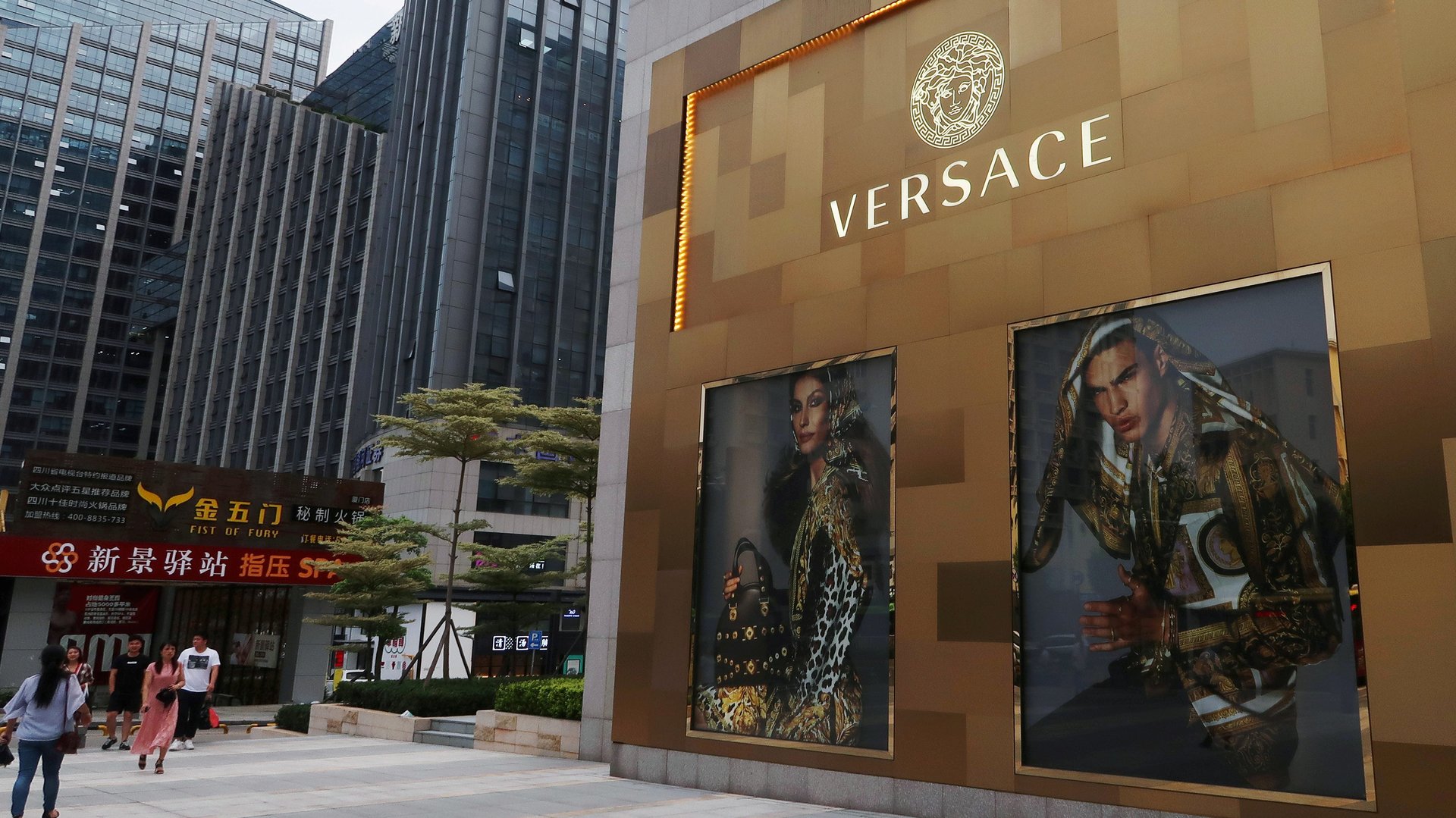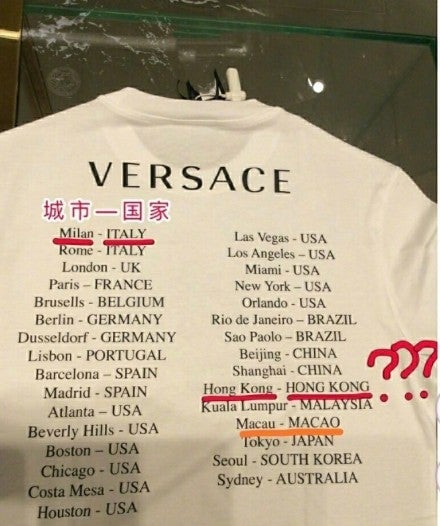Versace is the latest major brand to express its “deepest apologies” to China
This innocent-looking t-shirt has become so controversial in China that Versace, the company that made it, has today apologized for it publicly, stopped selling the shirt, and destroyed all of the ones it hadn’t sold. It is far from the first such apology by a major brand to China, as the list below demonstrates.


This innocent-looking t-shirt has become so controversial in China that Versace, the company that made it, has today apologized for it publicly, stopped selling the shirt, and destroyed all of the ones it hadn’t sold. It is far from the first such apology by a major brand to China, as the list below demonstrates.

In Versace’s case the issue, as those red lines and question marks indicate, is how the shirt appears to define what is and is not part of China. And that is something both the country’s leadership and its nationalist social-media factions are extremely sensitive about.
The shirt, these groups say, incorrectly suggests that Hong Kong belongs to the country of “Hong Kong” and Macau to the country of “Macao.” Both Hong Kong and Macau technically are part of China, but they are also what’s known as “Special Administrative Regions” and have a far higher degree of autonomy than other areas of China.
It has been enough to spin up widespread outrage in China, leading Versace’s Chinese brand ambassador, the actress Yang Mi, to end her cooperation with the company. “The motherland’s sovereignty and territorial integrity are sacred and inviolable,” Yang’s studio said in a post on Weibo explaining the decision. This of course comes at a time when the people of Hong Kong have been taking to the streets to assert their dissatisfaction with China’s control over them.
It has also led Versace to join the ranks of prominent international companies that, in the past year or so, have felt the need to release groveling apologies to the government and people of China following similar controversies over Chinese “sovereignty.”
Usually the Chinese government forces these companies to issue such apologies, threatening to cut off access to the Chinese market if they refuse. The apologies are all strikingly similar.
Company: Versace
Company: Marriott
Company: Delta
Company: Zara
Company: Gap
Company: McDonald’s